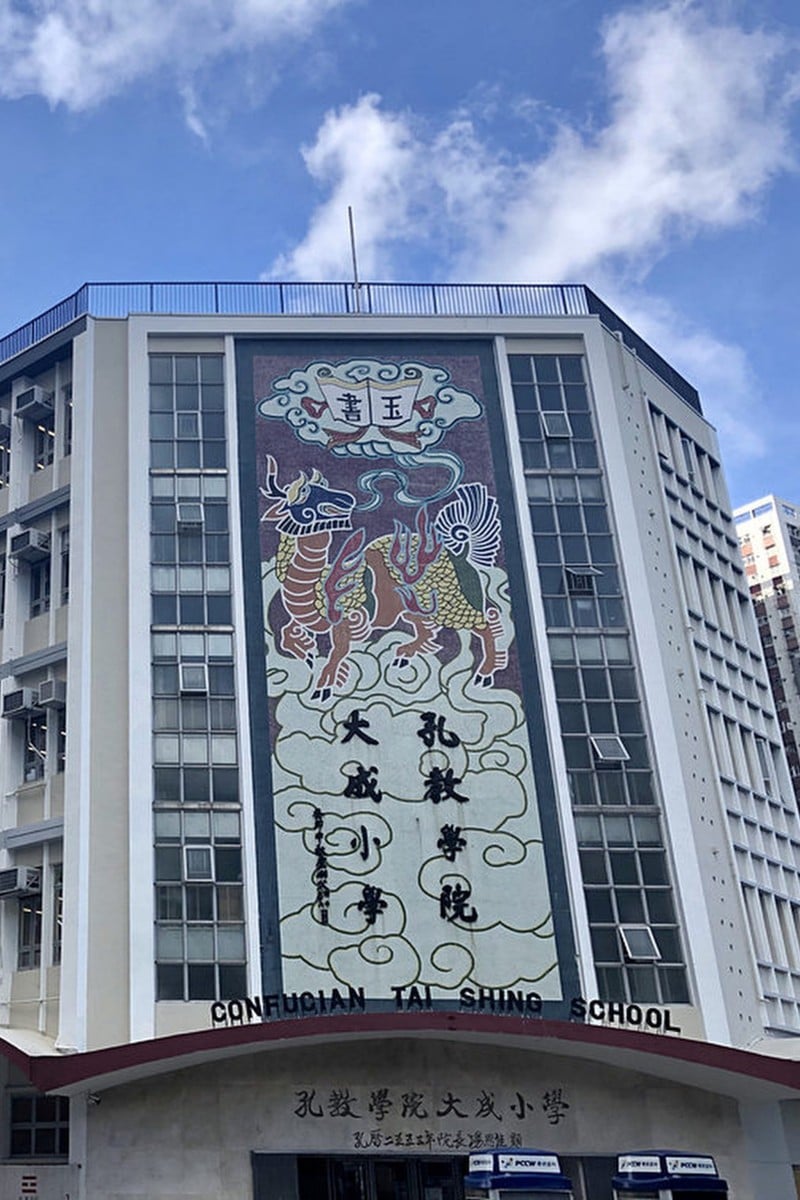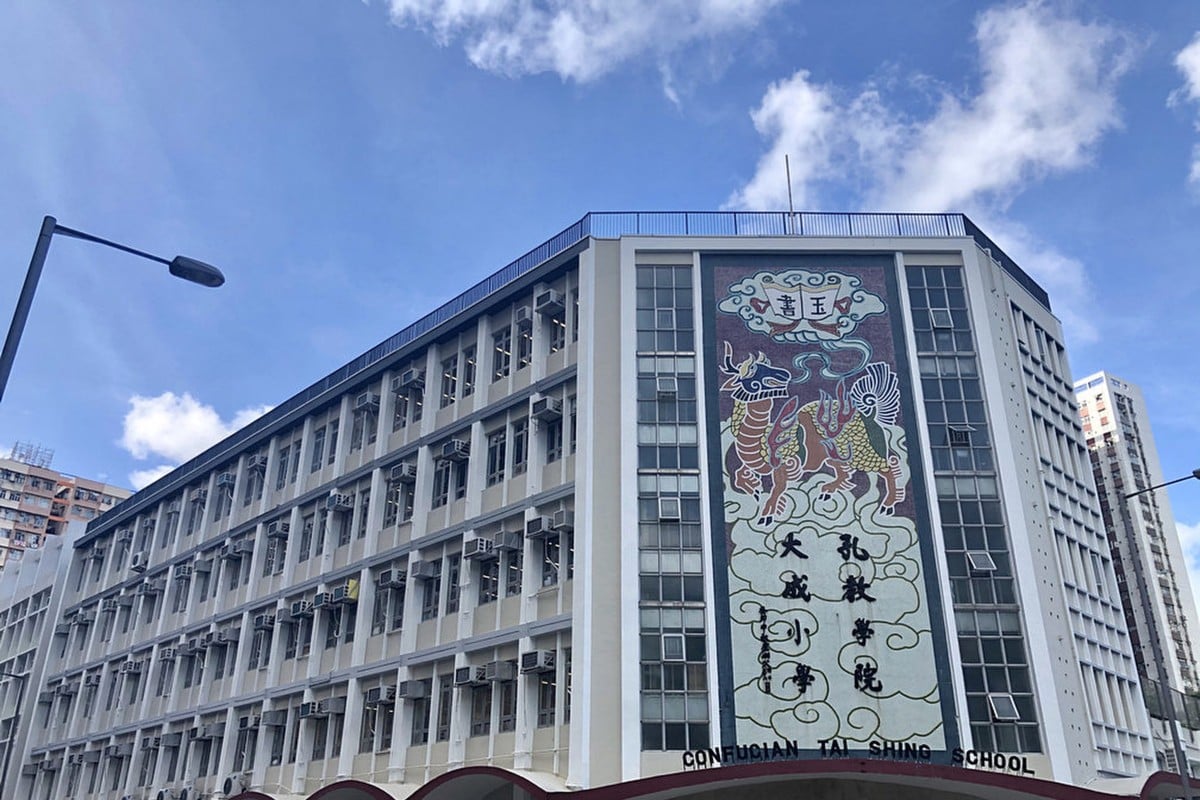
- Confucian Tai Shing Primary School and The Church of Christ in China Cheung Chau Church Kam Kong Primary School will run private entry-level classes
- Principal of Confucian primary says the school aims to recruit at least 25 pupils to the class based on the bureau’s guidelines
 Confucian Tai Shing Primary School’s principal has said an application to convert it to a non-profit private school is being prepared. Handout
Confucian Tai Shing Primary School’s principal has said an application to convert it to a non-profit private school is being prepared. HandoutTwo out of five Hong Kong schools that faced closure because of too low Primary One intakes will survive after the Education Bureau approved their plans to run private classes.
Debe Yuen Poon Suk-han, the principal of the Confucian Tai Shing Primary School in Wong Tai Sin, revealed on Friday it received permission on May 10 to run a private Primary One class in the next academic year.
She added an application to convert the primary school to a non-profit private school within the next three years was being prepared.
“I am very happy that we are able to fulfil our promise to our students. We have told the parents, and around 18 of them have expressed interests in enrolling [their children] in the class,” Yuen said. “The parents are also very happy and pleased that their children can study in our school.”
Hong Kong primary school facing closure hits back at focus on student numbers
She said the school aimed to recruit at least 25 pupils to the class based on the bureau’s guidelines on small class teaching.
The school is one of a handful that will not be given government grants to operate Primary One classes from the next academic year after they failed to meet the requirement of having at least 16 Primary One pupils.
The four other institutions that faced the axe are Po Yan Oblate Primary School, also in Wong Tai Sin; the Church of Christ in China Cheung Chau Church Kam Kong Primary School on Cheung Chau island; St Charles School in Kennedy Town; and the Salvation Army Centaline Charity Fund School in Chai Wan.
The Cheung Chau school on Thursday announced on its website the bureau had also given it permission to run private Primary One classes.
The Post has contacted the other schools for updates.
Yuen said the school was still discussing the level of school fees and that the board would make a decision next week.
“We wish to run the private class in the manner of a non-profit and set the amount of the fees as low as possible so that the general public is able to afford it,” she said.
She added she expected pupils who had enrolled in the school at the discretionary places admission stage would have their fees waived for the first two years.
Yoon said the school was required to submit a 10-page proposal which laid out details such as the operation and curriculum for the class and the support for the transition, to gain bureau approval.
33,600 students quit Hong Kong schools in last academic year amid emigration wave
She suggested the bureau should look at factors apart from Primary One intake levels when it decided whether schools could continue to be government-funded.
“A mere figure cannot determine the quality of the school or whether it deserves to survive,” Yuen said.
She added the education authorities should also “consider the learning reports, performance of the students, and whether there is growth in their knowledge”.
“The Education Bureau has the relevant data to examine these factors such as the public exam performance and academic performance at the school,” Yuen said.
The bureau said schools that fell short of the minimum number of entry-level pupils could consider options such as running primary classes on a private basis or merging with other institutions.
Officials said the schools could also ask the authorities to make a special inspection, apply to rejoin the admission system in the next year or close.
The Salvation Army Centaline Charity Fund School said earlier it was waiting for the green light from the education authorities to merge with another school run by the Christian organisation in a bid to ensure its survival.
It was earlier reported that Po Yan Oblate Primary School had applied for a special inspection and that St Charles School would rejoin the admission system next year.